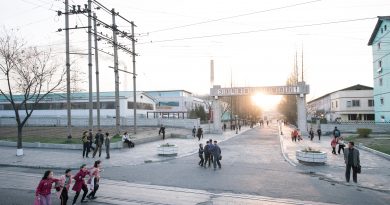Focus on Honor Killings: India
By Gabrielle Goldworm
Staff Writer
India faces a deeply cultural and religious epidemic of honor killings. In the past few years, honor killings went from a secret shame to a glaring human rights violation that affects not only Indian women, but the entire population.
While support for stronger laws against this phenomenon is growing, the deeply entrenched cultural, religious, patriarchal and class-related roots of this issue make it one of India’s most complex human rights discussions.
India’s history of honor killings exist in an already vast context of gender-based violence. While the 2012 brutal gang rape of a 23-year-old student in New Delhi caused thousands to take to the streets in protest of the act, and of India’s discrimination issues, it did not lead to significant legal or cultural shifts, reports BBC.
Outrage over such events tends to happen in urban areas — where activists can garner more attention, and there is less of a traditionally conservative mindset — but fails to permeate outward to rural areas. In addition, India lacks a specific law against honor crimes, making them harder to report and prosecute than other types of violence, reports Al Jazeera.
Four years after the New Delhi tragedy, Al Jazeera reported a massive uptick in honor killings in India in the previous years, spiking from 28 reported deaths in 2014 to 251 reported deaths in 2015. This massive increase was theorized to have resulted from the police starting to categorize honor-based killings as separate from murder, according to a report by Junior Home Minister Hansraj G Ahir to India’s parliament in 2014.
However the jump in numbers could also have occurred due in part to a rise in willingness to report, which could indicate a new sense of empowerment for those exposed to honor killings in their communities.
It would be inaccurate to characterize the average honor killing in India as a product of pure gender discrimination. India’s caste system, as well as the reported growing divide between rural and urban Indian communities, has created a sort of ‘values dissonance’ that may have exacerbated the conditions in which honor killings are more likely to occur, reports BBC.
The BBC, Al Jazeera, and CNN have all reported on the deaths of young women and couples who were killed by their families as part of an honor killing, and many of them have traits in common. All had plans to marry or were currently dating outside their caste, and most came from rural backgrounds, where community members either didn’t care or openly approved of the killings.
According to the BBC, citizens of a village known for honor killings vocally supported the killings, stating their distaste for the “decadent western” culture of urban India and the degradation of traditional values it creates. Honor killings continue to be seen as an affront to female autonomy, though, reports Al Jazeera.
Steps forward for human rights in India, such as an increase in the reporting rate of rape, often come with negative implications, such as the fact that many of these reports are filed by the families of women who have consentingly eloped, reports Al Jazeera. It is difficult to untangle issues regarding human rights in India from one another, and that may mean that honor killings will have to continue to take a backseat to more glaring human rights abuses.


